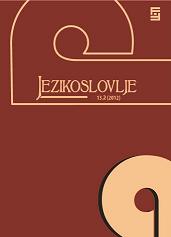On the emergence of Euro-English as a potential European variety of English – attitudes and interpretations
On the emergence of Euro-English as a potential European variety of English – attitudes and interpretations
Author(s): Christian ForcheSubject(s): Language and Literature Studies
Published by: Filozofski fakultet, Sveučilište Josipa Jurja Strossmayera, Osijek
Keywords: Euro-English; Erasmus community; nativization; questionnaire; attitudes
Summary/Abstract: The question whether the appropriation of English by non-native speakers in Continental Europe is giving rise to a potential European variety of English has not yet been resolved. In a study based on three main criteria (expansion of function, nativization of form, and institutionalization of norms), Mollin (2006) rejected the hypothesis of Euro-English as a variety in its own right, arguing that if Euro English did exist, it would first materialize amongst academics “because other speakers do not use English as often with other Europeans” (2006: 163). However, young mobile Europeans seem to fall into the same category and therefore might act as an ‘engine’ in the emergence of this potential variety. In order to examine this hypothesis, Mollin’s study was partially replicated focusing on a questionnaire survey with about 60 Erasmus students from 25 European countries (all studying in Pécs, Hungary, but within a variety of academic disciplines), detailing their attitudes towards English in general, towards Euro-English, and towards certain structures that have been proposed to be characteristic for this potential variety in the literature (e.g. the omission of the third person singular -s). As an addition to the original study it seeks to find out if comparable or different results can be yielded.
Journal: Jezikoslovlje
- Issue Year: XIII/2012
- Issue No: 2
- Page Range: 447-478
- Page Count: 32
- Language: English

